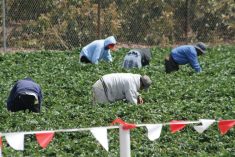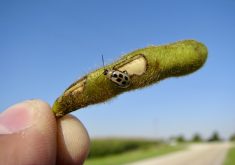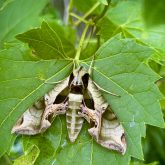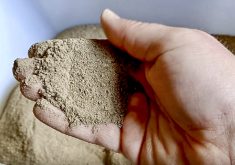The Pest Management Regulatory Agency has applied restrictions to insecticides containing the active ingredient lambda-cyhalothrin.
Among other changes, it can no longer be applied on crops destined for use as animal feed. The restriction means growers who previously used products such as Matador, Warrior, Silencer, Labamba, Voliam Xpress and Endigo will have to find other options to control insect pests.
Why it matters: The removal of lambda-cyhalothrin will require some grain and vegetable growers to make significant changes to their insecticide application strategies.
Read Also
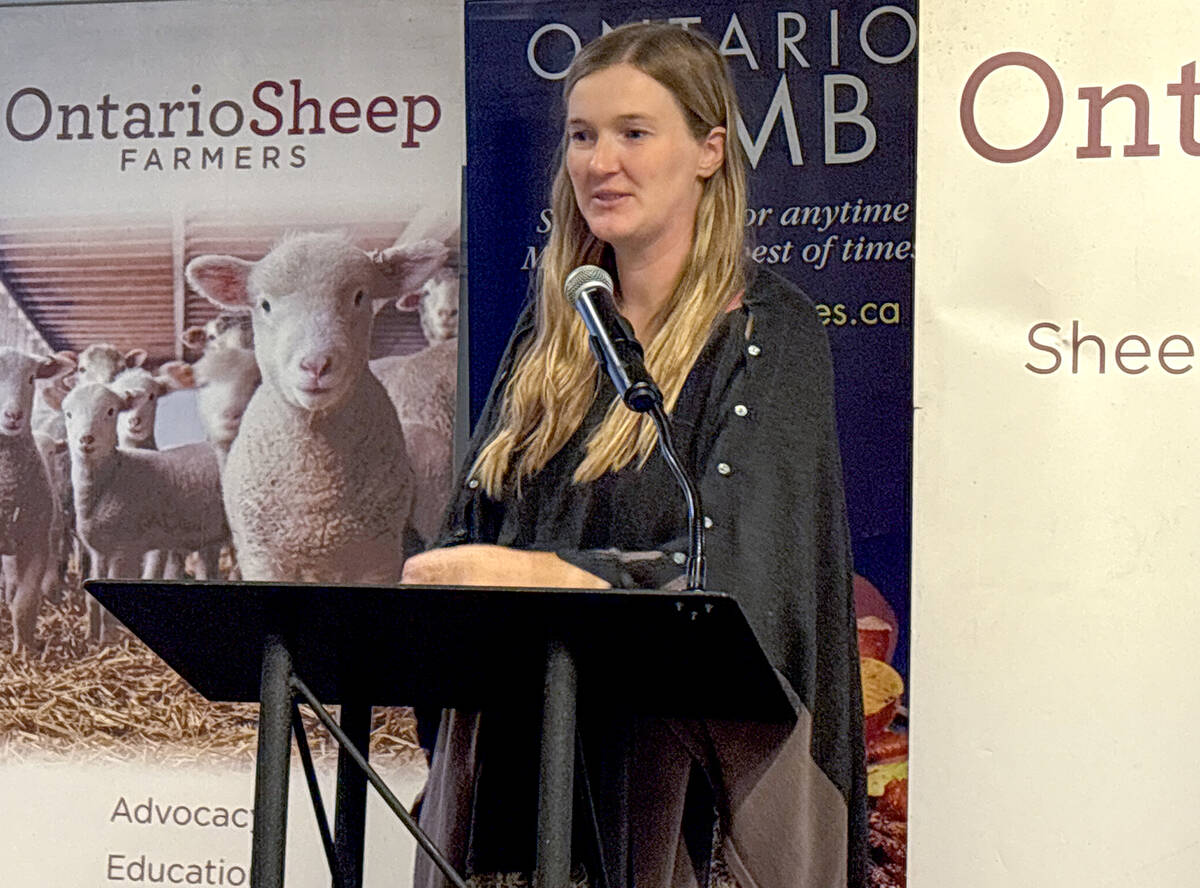
Footflats Farm recognized with Ontario Sheep Farmers’ DLF Pasture Award
Gayla Bonham-Carter and Scott Bade, of Footflats Farm, win the Ontario Sheep Farmers’ 2025 DLF Ontario Pasture Award for their pasture management and strategies to maximize production per acre.
Tracey Baute, field crop entomologist with the Ontario Ministry of Agriculture, Food and Rural Affairs, says the review of lambda-cyhalothrin by the federal regulatory agency highlighted higher-than-acceptable health and environmental risks on some crops.
After further analysis, PMRA concluded the active ingredient could be used if pesticide labels were adjusted to include, for example, longer re-entry intervals or greater limits on application frequency. However, it deemed some risks to be too great.
“There are some risks that were still not acceptable or there was lack of data to prove otherwise. That happens in some of the crop uses like lettuce,” says Baute.
The critical factor is the length of time between application and consumption, with less time posing greater risk.
The agency also said there are unacceptable levels of risk to humans who consume milk and meat from animals that eat crops on which lambda-cyhalothrin was applied.
“Regardless of whether it was acceptable on the crop, they don’t want to see any treated crop going to livestock,” Baute says.
“The problem is, for field crops, there is no guarantee that crops won’t at some point go to livestock feed. We don’t have a mechanism in place to segregate treated and non-treated.
“Manufacturers basically say you can’t use it on field crops until there is more data to show otherwise. It’s going to be an added effort on our part that, really, it can’t be used. You may see retailers saying they are not selling it, period.”
As of April, all lambda-cyhalothrin products are limited to horticulture crops in Eastern Canada in 2023. Baute says other products to manage key field crop pests are available in most cases.
But in a few situations, the restriction will require the use of older chemistries that bring more complications, such as posing a higher danger to pollinators. Pest control is often most effective at times when pollinators are most active.
Restricting growers to a few older chemistries also decreases rotational options, increasing the risk of resistance development in targeted pest species.
“Two crops that stand out in my mind are alfalfa and canola. The products still available should not be applied during bloom or shortly before because of risk to pollinators. We sometimes recommend harvesting early to reduce risk, but that is not always possible,” says Baute.
“In both cases you still have something you can use, but you’re going to have to change practices and spray after 8 p.m. … It’s not going to be as simple this year.
“I’m hoping, should the data prove we can’t be using it, there will be other products available in the tool box. The biggest concern was these products were always the go-to for some growers.”
Management considerations for a variety of pests in corn, soybeans, cereals, forages, dry beans, and canola are available through Baute’s “Bug Blog” on OMAFRA’s Field Crops News website. Further details on lambda-cyhalothrin regulatory changes are available through the PMRA.







